Victoria Dougherty's Blog
November 26, 2025
Cold Annual List of Undying Gratitude
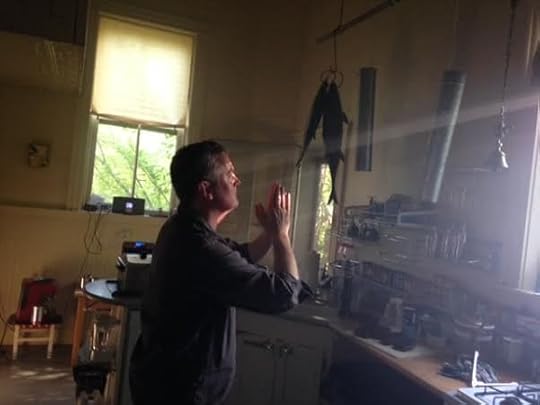 My husband giving thanks to the afternoon light a few years ago.
My husband giving thanks to the afternoon light a few years ago.This is my quirky, annual list of things for which I’m grateful. Maybe you’ll find some of the items a bit oddball—I can’t deny that unlikely things have made my list in years past. Like a swarm of flies that congregated at my office window, and the spooky sound of footsteps at night, when no one else is home. Those might not make everyone’s list the way chocolate cupcakes and puppy kisses do.
Hopefully, regardless of whether you share my tastes in gratitude, this list will make you feel a bit warm and fuzzy inside, have you twisting up your face in laughter or confusion, and contemplating the good enough, the pretty damned good, and the great.
Let’s get started:
I’m grateful for the framed family pictures we brought with us on our move to Doha, Qatar. Our son’s friend Gabe, who is like family, gifted us a session with a photographer friend of his mom’s. Now our children and our dog stare back at us from black and white prints hung all over our apartment, reminding us of the twenty glorious years we spent raising our family in Virginia.
Thank you.
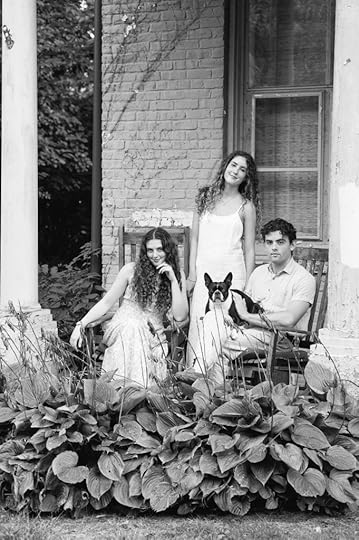
I’m grateful for dreams—the ones we scheme for during the day and the ones that ambush us at night, making us fly wingless above clouds or run with wild beasts, bringing just enough magic to make the impossible seem worth attempting.
I’m also thankful for breezes—whether they’re the cool, shivery fall ones back home, or the warm desert gusts that blow through my hair in Middle East. I just love those. And for Virginia country gentlemen, who say, “Yes, Ma’am” and “No, ma’am” with an almost imperceptible nod of the head, as well as the Doha patriarchs in their white, neck-to-ankle thobes, who seem to float down the street like ghosts. I love the way they stop to twist and wrap their head scarves like elaborate hairstyles.
And I love old Persian rugs, and new music introduced to me by my children: singers and songwriters like Tyler Childers and Lana Del Rey. They freshen my tastes, encouraging my mind and heart to remain open.
I’m grateful for the view from my Doha terrace—especially when a boat growls across the marina below. I’m so happy we thought to have our antique lanterns shipped over from Virginia, too. We light them for dinner parties, evening cocktails—any old time—and they dress up every occasion. I’m grateful for a perfect Manhattan, and a glass of warm milk. My nineteen-eighty-six map of the Prague metro, which includes the old names of some of the stops that have long since been changed: Cosmonautova, Leninova—communist names from before the 1989 Velvet Revolution changed the world.
I’m ever so appreciative of old homes and new beginnings, too. For oceans, for lakes, for streams, for puddles. For a teaspoon of fresh cream and a heaping dollop of the whipped stuff.
I love intricate spider’s webs and wavy glass, new technology and analog, worn quilts and freshly washed sheets, the ache of missing a loved one, and the joy of our reunion. And yes, I love to dance on tables, as I’ve recently rediscovered as an empty-nester— one who shimmied her way across a long woody at Octoberfest a few weeks ago.
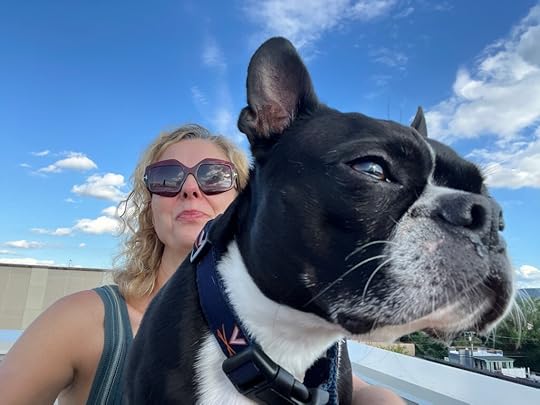 First official night as an empty nester (not the table-dancing night)
First official night as an empty nester (not the table-dancing night)I’m utterly nourished by the mere presence of my children, even if they’re not saying much and we’re just taking up space together. And there’s nothing quite like cuddling with my dog, Barney. I miss him, but I’m so grateful that our daughter is taking good care of our youngest family member.
My children’s friends are people for whom I am truly thankful. They’re kind, funny, oddball at times, and most importantly, they’re good. They have my kids’ backs and I hope they know we have theirs.
I love the decaying beauty of abandoned spaces. Potbelly stoves and match sticks. Black and white movies and Instagram reels. Air conditioning—unequivocally yes! Falling back in love with my husband after a few years of just having to push on through the muck of life (absolutely sublime). Speaking of which—my husband’s new beard is just the best! I’m ever so grateful that he grew it. Makes him look slightly dangerous, like if Ernest Hemingway were a Bond villain.
Full moons that inspire stories are divine. Fresh pears and fresh garlic are perfect, although not necessarily taken together. I don’t like champagne, but I’m so grateful it exists and makes other people happy. And I love to reminisce about my late brother-in-law’s raspy and snarling Scottish brogue, one that’s in complete contravention to his sentimental heart. God rest your soul, Alistair.
I’m inspired by and feel such gratitude for my strange, sometimes tentative faith: the way it surges for no known reason, and becomes frail as glass thread on other days. I’ve been told doubt is what keeps faith a living entity within our hearts and I believe that.
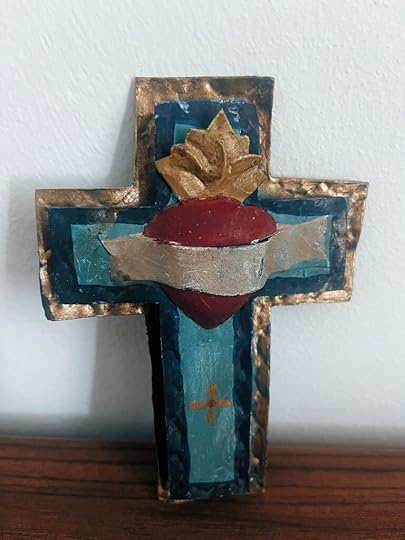
I must also pay tribute here to stinky cheese, love poets, clear skies, ceiling fans, war stories, modern medicine, inventors, builders, and makers, orchids, soldiers, priests, siblings, raucous laughter, dirty jokes, witch costumes, scary stories, Bugs Bunny, wild, curly hair, tasteful nudes, mosquito repellent, lip gloss, a full belly, a full heart, the end of an ordeal, the beginning of a new chapter, sturdy flip flops, hot hummus (who knew how good it is?), fresh blue-green grass, the Big Dipper, vintage pick-up trucks, old-fashioned movie houses, and that corn chip smell that comes from a dog’s paw.
Last, but never, ever least, I’m grateful for all of you who are reading this. Now it’s your turn.
And by the way, my friends. As a big THANK YOU, Night of the Moon Witch is FREE on Amazon today and tomorrow (Thursday, Nov 27 and Friday, November 28). I hate Black Friday chaos, but I love y’all.
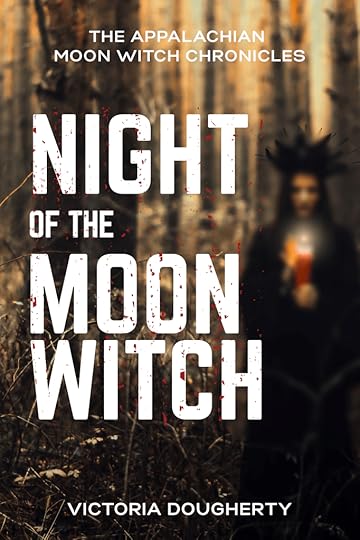
November 9, 2025
How My Brother Taught Me to Love Ghosts
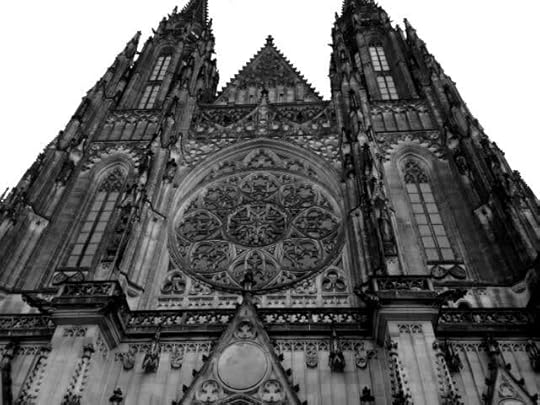
On our shelves were a handful of worn, black and white picture books of the old country. Czechoslovakia. Prague. This was where my people were from, and not in some distant past—my mother had escaped communism when she was pregnant with me, taking my eight-year-old brother with her. I grew up outside of Chicago, in a house with a sunken living room, riding a banana seat bicycle down streets that could have been in any American suburb. But those photographs held a different inheritance entirely.
My brother remembered. He gave me Prague as a gothic dream made of shadow and stone—a city that looked as though it remembered every sin ever whispered in its streets. In the stories he told me, the spires of St. Vitus clawed at the sky, and the Vltava River moved beneath its bridges like a dark pulse. Gas lamps burned in the fog, turning cobblestones to scales of gold and black. Even laughter sounded haunted there, echoing off baroque façades that leaned too close, as if listening.
The Czech countryside he described was no less eerie in its beauty. Ancient woods and rolling fields stitched together by mist. Every forest dark and close, every village with its bell tower leaning a little toward heaven, as if in apology for all the blood shed on its soil—the conquerors who had raged there over the centuries. At dusk, the air turned blue and metallic, and the rivers shined like veins under the land’s pale skin.
A master storyteller, he fed me his own weird little tales about creatures and dark enchantments, ones I snacked on like sugared sins—too pretty to resist, too wicked to stop at just one.
He was training my imagination, though neither of us knew it then. Teaching me to find home not in the landscape I could touch, but in the one I could only imagine.
Then, when I was seven, he read me Bram Stoker’s Dracula.

The story took me beyond the atmospherics I’d grown to see as a birthright I’d been robbed of and introduced me to a character who was erudite and manly in the classical sense, but also entirely corrupted. A man who had begun his life as a king, a warrior, but who had been reduced to predator, to parasite—something that could only take and never truly possess. The tragedy of his downfall stretched beyond his human life, sucking his very soul into its vortex, leaving him with an unquenchable appetite for a life he was no longer able to enjoy.
In one of the most understated and haunting moments of the novel, when Jonathan Harker and Quincy Morris drive a stake through the vampire’s heart, I remember barely being able to breathe. Stoker writes:
“It was like a miracle; but before our very eyes, and almost in the drawing of a breath, the whole body crumbled into dust and passed from our sight. I shall be glad as long as I live that even in that moment of final dissolution, there was in the face a look of peace, such as I never could have imagined might have rested there.”
It’s a moment rarely discussed in the public, commercial conversations about the story and its many adaptations. Yet to me, it was the most powerful moment of the novel. One that has stuck with me all my life and made its way into every story I’ve ever written—Cold War thrillers haunted by real ghosts, ancient lovers hunted by their own history, and my most literal manifestation of this fixation: an occult horror and gothic romance series set in the heart of Appalachian Virginia.
That moment also informed my own move to Prague in my twenties. And when I arrived, I saw straight off that my brother’s impressions, those black and white photographs in our picture books, were not depicting some romanticized version distorted by longing. Prague is a city that makes you believe beauty might be a kind of haunting, and haunting a kind of prayer. I was finally inhabiting the landscape I’d been longing for, and it was exactly what I’d been promised.
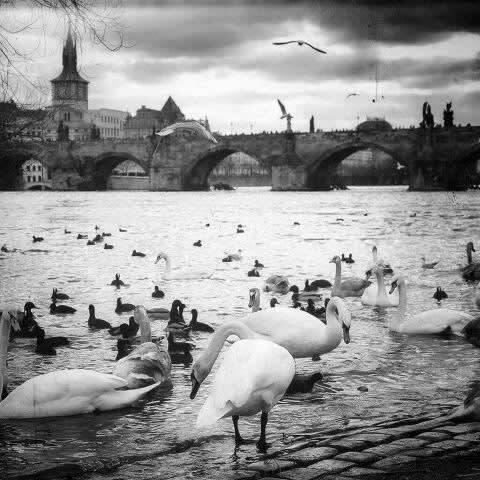 Photo by Mark Baker
Photo by Mark BakerThat revelation has followed me everywhere since. It took root in the red clay soil of Virginia, where for twenty years we raised our family. Now it’s digging its fingers into the sands of Qatar, where my husband and I are learning to be empty-nesters while our children build their lives an ocean away.
The gothic has never left my work. I’ve made Appalachia a place where beauty and terror walk hand in hand, where family history becomes mythology, where the past doesn’t just haunt but actively shapes the present. My love for my children now lives in a place of longing, suspended in the space between visits across oceans, while my husband and I reclaim what was once reserved only for us—intimate dinners, adventures and curiosities, our faith in each other and in infinity itself.
Nothing could feel more natural.
It’s in these transitions—trading mountain rhythms for desert winds, presence for absence, proximity for perpetual longing—that I realize the gothic isn’t just what I love. It’s how I’ve learned to love. Through shadows, through absence, through stories told about places I can’t easily reach.
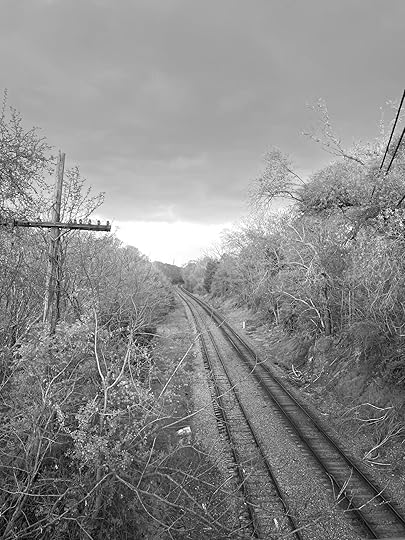
My brother taught me this. Not just an aesthetic, but a way of holding what we can’t possess. We all have our Dracula moments—that flash of peace in dissolution, the recognition that some beauty only exists in loss, some redemption only comes through ending. He gave me a homeland I never inhabited as a child, and in doing so, taught me that longing itself could be a kind of home. That the ache of distance becomes its own country, one where what we love grows more vivid precisely because we can’t hold it.
The gothic became the architecture of my longing. And longing became the architecture of everything I’ve built since.
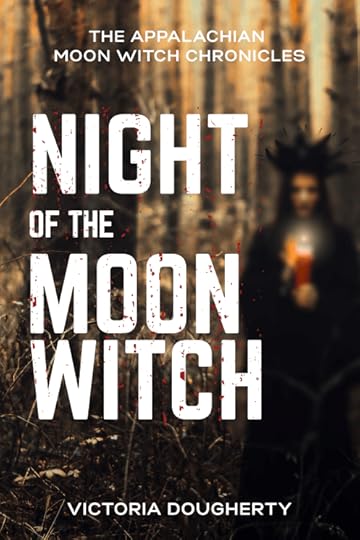
October 1, 2025
A Different Kind of Witch Hunt: Night of the Moon Witch Goes FREE This Week!
Twila thought grief was the worst thing that could consume a family. She was wrong…
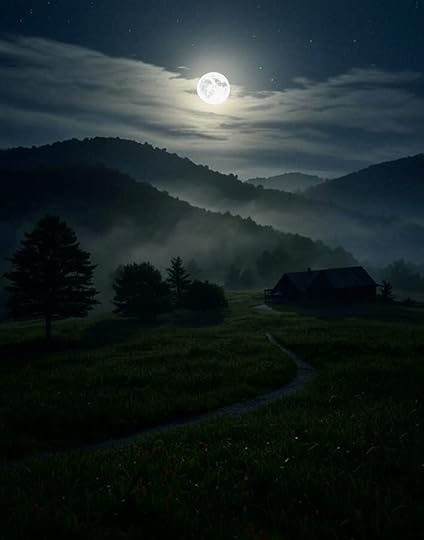
Listen, I know you come here for thrillers—for the kind of stories where someone’s always running, where the threat is human and the stakes are survival. I respect that. That’s why I write the books I write for you.
But sometimes a writer needs to let something darker out of the cage.
From October 1st-3rd, my gothic horror novel Night of the Moon Witch will be FREE on Amazon. It’s not a thriller. It’s something older, stranger, and considerably more unhinged.
The Bramwell women don’t hunt spies or chase assassins. They are the thing that makes killers look tame. They created mountains, traveled through time, and paid for their power in currencies that would make your average serial killer weep. This is a story about generational curses, family secrets so catastrophic they warped reality, and a love that survived being completely erased from memory.
If you’ve been with me through the psychological twists of my thriller novels, you know I don’t do simple. I don’t do safe. Night of the Moon Witch takes that instinct and drags it into the woods where the old gods still remember their names.
It’s Appalachian gothic horror—all chimney smoke, red clay, bloodlines that predate the Republic, and magic that costs everything.
Fair warning: This isn’t a cozy mystery with a witch protagonist. This is visceral, violent, and unapologetically dark. But if you trust me to take you to uncomfortable places—and you have, book after book—then you’ll want to see what I did when I stopped holding back entirely.
Download it before October 3rd. Consider it my Halloween gift to the readers who’ve followed me into every dark corner I’ve explored.
Your ghosts are waiting.
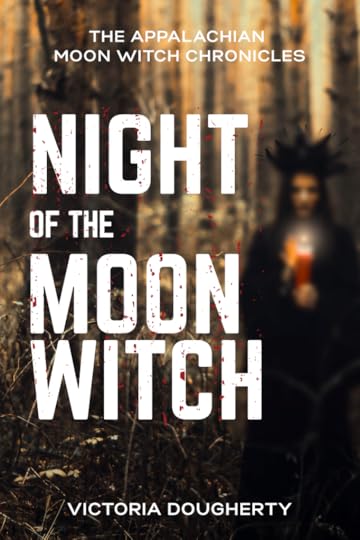
September 19, 2025
Night of the Moon Witch is Here (And I’m All the Way in Qatar)
For decades, horror lived in me like a secret language I refused to speak fluently. I could appreciate its literature—Dracula, Frankenstein, Edgar Allan Poe’s complete works. I could lose myself in Bela Lugosi’s hypnotic voice, Christopher Lee’s Gothic grandeur. But writing it? That required a courage I didn’t possess.
I could excavate family trauma with archaeological precision, weave Cold War espionage through fog-shrouded landscapes, thread the supernatural into historical narratives without flinching. But horror—true horror, the kind that follows you into sleep—demanded complete surrender to the deepest, most undefended places in the human psyche.
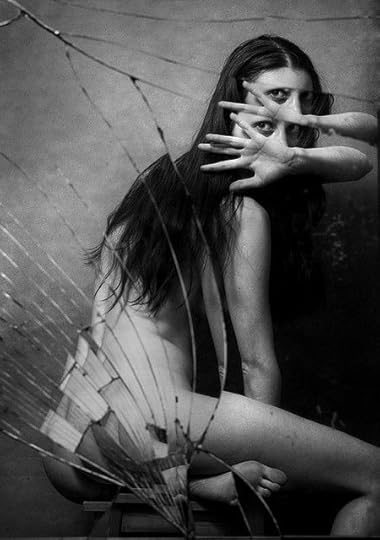 The Cartography of Exile
The Cartography of ExileLast September, I packed twenty years of Appalachian silence into suitcases and carried them across an ocean to Qatar. Under foreign stars, surrounded by the desert’s relentless clarity, I discovered a paradox: sometimes you have to become geographically displaced to become emotionally rooted.
It was there—where the call to prayer rose like an ancient incantation—that Night of the Moon Witch began pouring out of me like something dammed up for decades. A gothic Appalachian tale about women bound by blood magic and family betrayal, where poetry carries curses and love stories turn lethal.
I thought I was finally writing fiction. It turned out I was performing an exorcism.
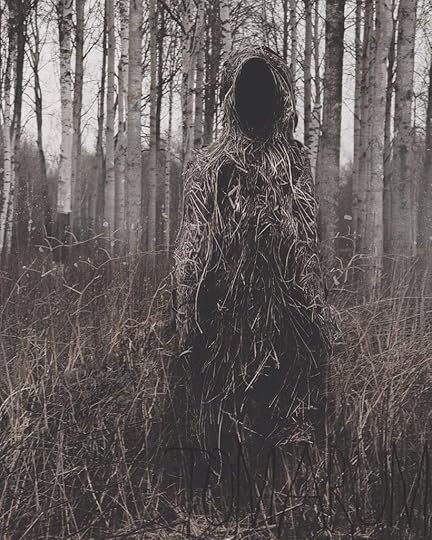 The Architecture of Damaged Families
The Architecture of Damaged FamiliesThere’s a particular architecture to wounded families—the way silence becomes load-bearing, how unspoken truths hold up entire emotional structures. In mine, each generation developed its own relationship with inherited wounds: some women turned their pain into religion, others built elaborate cathedrals of denial around theirs. What they all shared was the understanding that certain stories were too dangerous to tell, too essential to forget.
The Bramwell family in my novel carries that same weight—powerful, cursed, divided by blood and bound by secrets that make their own weather systems.
The landscape mirrors this emotional topography: mountains rising like ancient guardians, their faces carved into something almost human—watchful, knowing. A town perched like a jewelry box someone forgot to close. The Montague Hotel presiding over manicured gardens, windows reflecting clouds that pause for the view.
But beneath that postcard prettiness lies something older, more restless. Hot springs bubble up from honeycomb caverns, carrying the sulfur scent of deeper places. The mineral pools steam even in summer, their waters the color of old pennies, warm as blood.
It’s a place where generational trauma becomes a monster.
This is where I’ve finally found courage to set my characters loose—not in some safely distant past, but in a present-day landscape where you could stumble into the story yourself.
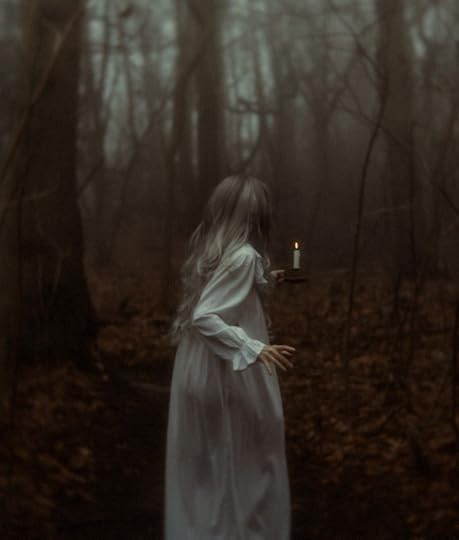 What I’ve Learned
What I’ve LearnedSome stories require the most remote telling to become intimate. The fears I couldn’t name while living inside them became writeable once I’d carried them far enough away to see their shapes. Exile taught me that displacement isn’t always loss—sometimes it’s the only way to gain perspective necessary for real homecoming.
Horror isn’t about creating fear—it’s about giving shape to the fears that already live in us, making them visible enough to be faced.
And now that story exists in the world. Night of the Moon Witch is available now, and I find myself both terrified and desperate for readers to experience what poured out of me in that Qatari desert. I’m genuinely curious whether it will haunt you the way it’s haunted me.
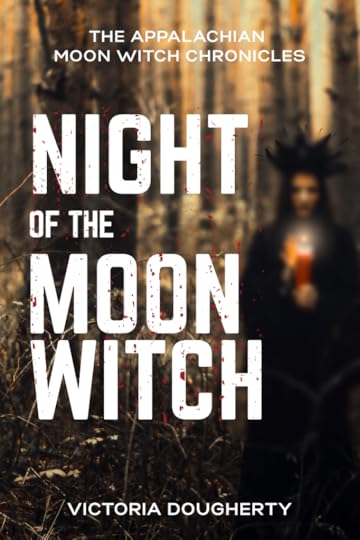 An Invitation Across Waters
An Invitation Across WatersI’m building something new now, a space I call Gothic Tales and Desert Revelations where I explore the cartography of exile and return, the archaeology of family myths, the peculiar magic that happens when distance finally lets us see home clearly. It lives on Substack, where I share essays, fiction, and Desert Dispatches from this strange life caught between Virginia mountains and Qatari desert.
If you’ve been following my work here at Cold, I hope you’ll join me there for this next chapter. While Cold isn’t going anywhere, this new territory requires different tools, different exploration. It also just offers you all…more.
And if you do join me, you’ll get access to something special: a prequel short story that offers a taste of the Appalachian Moon Witch Chronicles universe. Consider it a bridge between the familiar territories we’ve explored together and the darker, more mythic landscapes I’ve finally scraped up the courage to inhabit.
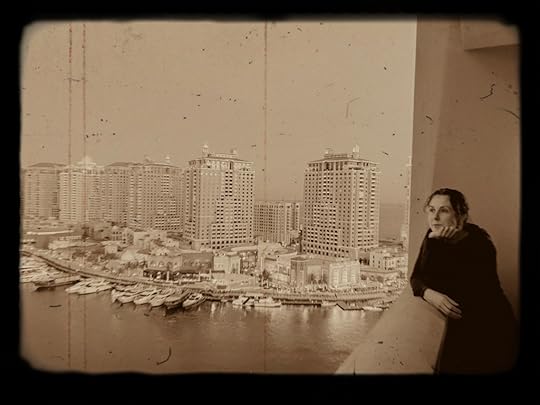
August 30, 2025
Comings and Goings
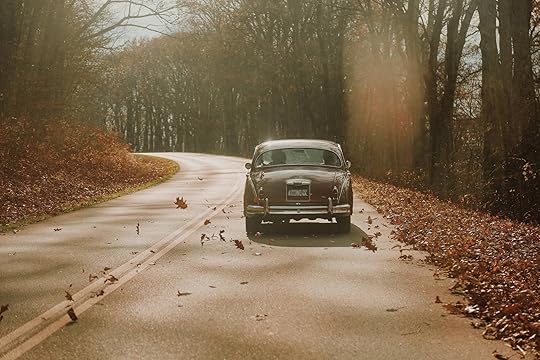
On Sunday, I’ll board a plane for Doha. That’s two days left of this thick Appalachian summer–the floral air, the bats tracing dusk with their wings, the laughter of friends drifting through the heat. Two days left with my children, scattered on their early-adult adventures, and my Boston Terrier, Barney, who will stay behind with my middle daughter. Two days left with the skeleton of my house, and the view of the mountains. While I’m so looking forward to reuniting with my husband– seeing new friends, making dinner, sharing stories from our days–I’m feeling a bit lost. I’m leaving behind all of the things I’ve been writing about in one form or another as I conjure my Appalachian Moon Witch Chronicles series, the first of which (or witch, if you prefer) will be debuting in a few short weeks.
I’m always haunted by the places I leave. When I returned to the US after four years in Prague, Cold War thrillers spilled out of me–stories set in those shadowed streets I thought I’d left behind. When I moved to Virginia to raise my family, I wrote hundreds of personal essays about growing up in an immigrant household in Chicago, exploring my roots in Central and Eastern Europe.
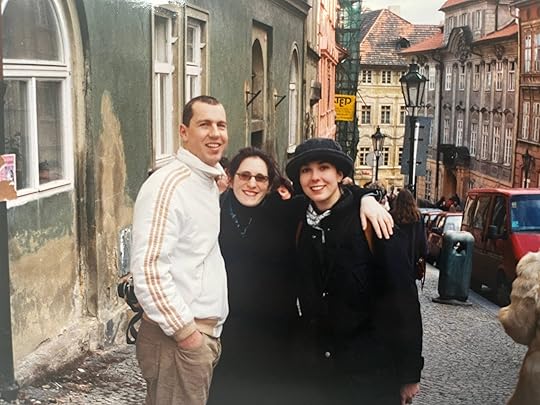
And now, after crossing the world once again–to the Middle East, of all places–I’ve found myself writing about Appalachian Virginia. Its yellow porch lights and moonshine nights. Its accents as thick as its floral perfumes of honeysuckle and lilac. It’s colonial splendor and mountain poverty living side by side, neither pretending the other doesn’t exist. Outside the region, people expect nothing but the toothless hillbillies depicted in movies and television shows, but there are all kinds of people here. And there’s a lot of generational wealth in Appalachia, too. High culture and perochialism mingle, often within the same person, on the same main street. The high and mighty here look down their noses at the coastal elites. They see their lives as better, richer, more community oriented and historically literate. They might be right.
I often wonder what I’ll write about when I leave Doha. I’ve already written three books set in the desert, both its ancient silences and its modern restlessness. Maybe my Breath series was precognition–a whisper of the stories waiting for me there before I even set foot on the concrete now covering the sandy shores of the Persian Gulf.
Wherever I go, I seem to live in two places at once: the ground beneath my feet and the ghost of the ground I left behind. One world bleeds into the other, a slow seep of memory and dream. The desert’s heat-shimmering horizons blur into the mist-heavy hollows of the Blue Ridge.
My real life keeps tresspassing into my fictional ones, carrying its scents and shadows, shaping the haunted landscapes and troubled characters that follow me from book to book. A crumbling minaret will turn into a watchtower in some medeival village of my imagining; the dust devils skittering across a Qatari road will become spirits wandering an abandoned Appalachian churchyard. The boundaries are thin.
Pre-order Night of the Moon Witch here. Then sit back and enjoy the view.
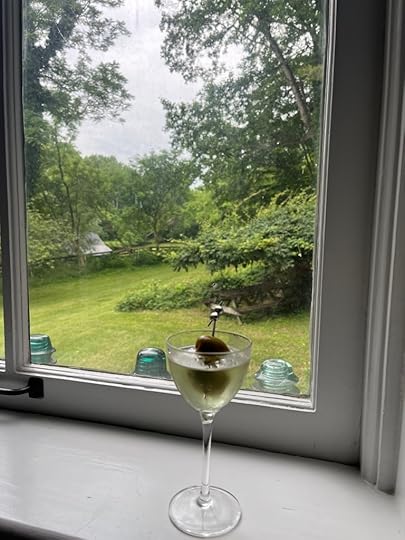
August 16, 2025
Packing Away Twenty Years – And One Curse
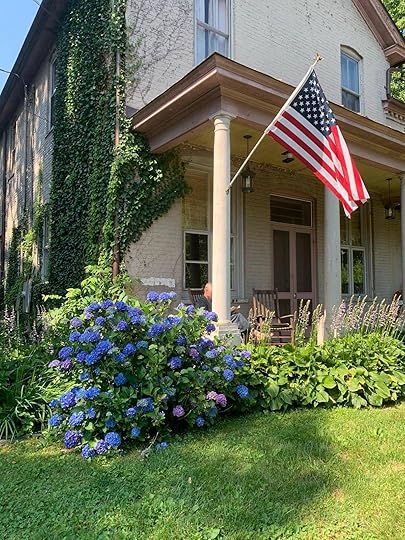
When I flew from Doha to Virginia for three months, I carried only one suitcase—the rest of my belongings still anchored in our house here, though not for long. I’ve spent the past weeks packing up twenty years of living, readying the rooms for another family to move in. Soon, they’ll eat at our table, sleep in our beds, make their own small history under our roof. I want them to love the place, but not so much they forget it’s only on loan.
As I’ve been sorting through objects and memories—an old, churchy candelabra I bought my husband for Christmas one year, a clay ballerina my daughter sculpted in art class, my son’s Boy Scout sash—I’ve also been unpacking a year of creative expatriation. I’ve been weighing what the desert silence taught me about south-central Virginia ghosts—the ones that keep to the edge of the vast Appalachian wilderness.
These contrasts aren’t simply curiosities to store for my writing—though they feed it well. They have always been, for me, a source of clarity.
In Virginia, light falls gentle and dappled through oak and poplar. Silence is never whole, it’s stitched with the murmur of creek water, cicada thrum, bird calls, the wind teasing through leaves like whispered scripture. The calls to prayer here are inward—the deep inhale before a promise, the gut-punch of a memory, the wordless petitions I send for my children’s safety while I’m far away.
In Doha, light is sharp as a blade at noon, softened at day’s edge by desert dust that turns the horizon to rose and copper. Silence is vast—a breath held under heat so thick you can feel yourself moving through it. The calls to prayer are a public affair, rising five times daily, a braided spiritual music that reminds you worship is not just private devotion, but a cultural heartbeat that cannot, will not be ignored.
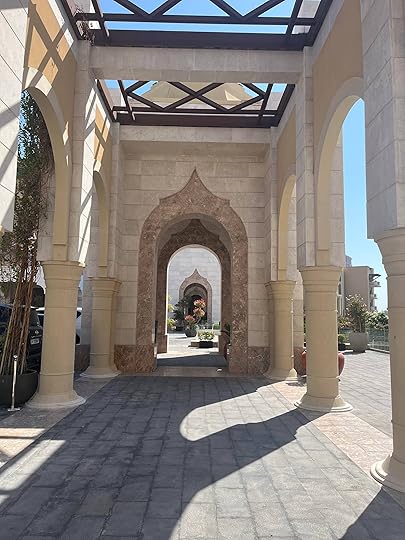
Doha is not my first displacement. I come from an immigrant family driven from home by war and politics. While I grew up in Chicago, I’ve also lived in Prague, St. Louis, San Francisco, and now Qatar–moves I undertook by choice.
I know very well the strange gift of detachment that displacement brings—and I welcomed it after years of struggling through my mother’s trauma and the wreckage it has wrought in her old age. I had always imagined caring for her during her twilight years, pictured her releasing the shadows of her childhood—the abandonment, the persecution, the years as a political prisoner and refugee—and letting herself rest in the love of her grandchildren.
But my own naïveté did not imagine how dear those shadows had become to her. That she would tend to them like a private garden, coaxing them to life in conversations with cashiers, doctors, friends, and finally, those who loved her most.
I had believed, with the stubborn faith of someone who has never lived through war, that love could be more compelling than trauma. That the present could be more real than the past, and a daughter’s devotion might, eventually, matter more than a lifetime of practiced abandonment.
It’s not that I don’t understand the pull of the past. My family’s refugee story became the bedrock of my identity—the foundation myth that taught me to leave without fear, to adapt, to make homes in foreign places. That inheritance was a gift, a resilience passed down like a family recipe. It allowed me to carry home inside myself and write from anywhere—whether Cold War thrillers or time-bending fantasies about love surviving the ashes of an apocalypse.
But standing in our Virginia kitchen now, packing up the iron skillets we’ve cooked in for over two decades, I can feel how different this homecoming is from the way I imagined it. The dappled light that once seemed gentle now reveals too much—the way hope can become its own kind of delusion, the way some prayers are answered with a silence so complete it changes the shape of your mouth.
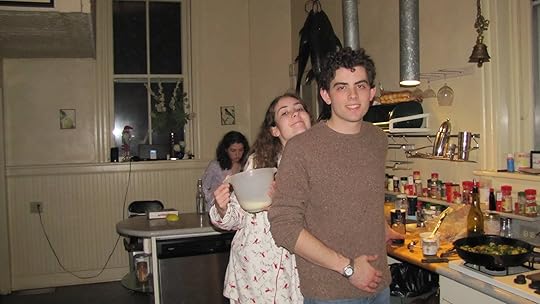 I miss these dinners most.
I miss these dinners most.It was my mother who taught me to pack light, to carry my treasures in my heart rather than in suitcases. She taught me that adaptation was an art form. But she also taught me something else, something I’m only now learning to name: that some people make exile their permanent address. Not geographical exile, but the kind that happens when you make a homeland out of hurt.
Writing Night of the Moon Witch was like performing an autopsy on my mother’s wounds–how she polished them into cherished heirlooms, handed down with more care than her wedding ring and family portraits. As I conjured up the story of the Bramwell women, moon witches bound by blood and silence, I began to see how my mother is bound by an even stronger curse: the terrible intimacy she shares with her own pain, the way it has become her truest, most reliable companion.
But curses, I’ve learned, only have the power we give them.
As I pack away our family pictures and the sweet, goofy mementos we’ve collected over years, I’m conducting the strangest archaeology—excavating twenty years of hoping someone might choose healing over history, sorting through all the tenderness I prepared for a mother who ultimately rejected it.
I’m realizing how the answers I seek lie somewhere in the space between the Virginia silence and the Doha silence—in that place where distance becomes not escape, but perspective. Where displacement teaches the difference between carrying your stories with you and being weighted down by them.
My mother’s inheritance to me is complex: she taught me to survive anywhere, but she also showed me exactly what survival can cost when it becomes your only story. Some inheritances can be accepted with gratitude. Others can be acknowledged with compassion—and then, carefully, deliberately, set down.
I’m still learning to let go of hope for revelation, for peace, for the mother I’ve seen glimpses of over the years, and the one I imagined she might become. But I’m also learning something else: how to pack differently. How to carry her resilience without carrying her ghosts. How to honor the survivor in both of us while writing my own ending to the story.
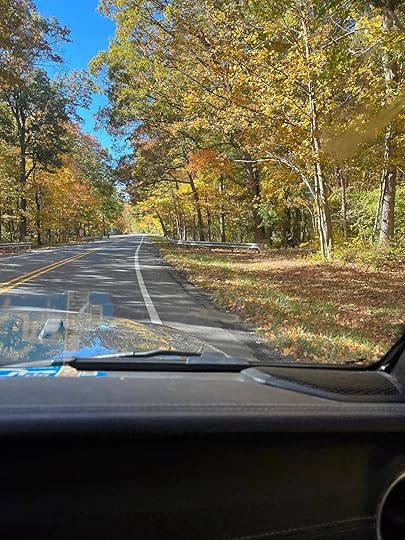
Preorder your Night of the Moon Witch ebook on Amazon today, or your real, hold-in-the-hand copy on Speakeasy Editions.
When poetry professor Twila Stith arrives in the mysterious mountain town of Sibyl Springs, Virginia, she thinks she’s starting over. She couldn’t be more wrong
Fired from her university position and desperate for a fresh start, Twila accepts a teaching job at the prestigious Valemont School for the Gifted. But from the moment she sets foot in this old Appalachian town, she knows something is watching her. A man plunges to his death from the historic Montague Hotel, his blood staining the grand entrance. Strange dreams blur the line between memory and vision. A ghostly girl from decades past appears with cryptic warnings. And most unsettling of all, she finds herself inexplicably drawn to Langston Martin—her enigmatic department head who seems to despise her on sight, and harbors secrets as old as the mountains themselves.
As eerie encounters escalate and the full moon approaches, Twila discovers that her lifelong fascination with lunar cycles runs deeper than mere poetry. The residents of Sibyl Springs recognize something in her that she doesn’t understand—something that makes her both powerful and dangerous. When ancient forces begin stirring in the shadowed hollows and a malevolent entity sets its sights on her, Twila must uncover the truth about her connection to this place and its supernatural inhabitants.
But in a town where everyone guards their secrets and the past refuses to stay buried, Twila will learn that some truths are more terrifying than any lie—and remembering who she really is might be the most dangerous thing of all.
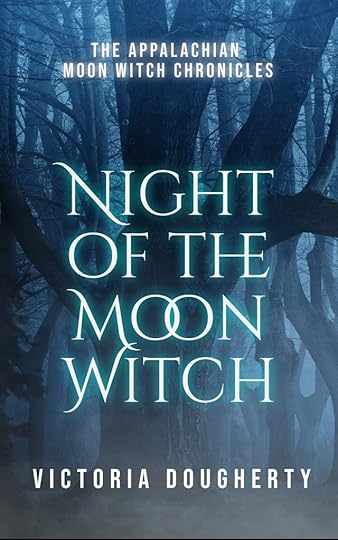
August 2, 2025
Night of the Moon Witch is Coming!
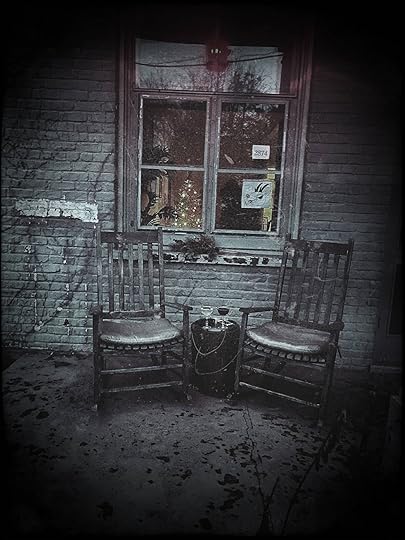
When we first moved into our house in Charlottesville, the nights were… noisy. Not in a modern, beeping and chinking way—more in a Civil War morgue that remembers too much kind of way.
Things went bump. Floors creaked under no feet. Nothing ever felt threatening—just present, insistent. Watching.
One night, I got up for a drink of water. I came back, crawled into bed, and as I settled into the pillows… a whisper.
A man’s voice. Right at my ear.
I froze.
“Did you say something, honey?” I asked my husband.
“No,” he said. “But I heard it too. Let’s talk about it in the morning.”
We did. But the house never did explain itself.
Because ghosts don’t ask for permission. And they don’t care where you live.
Since moving to Doha, I’ve found that silence sounds different there—more brittle than the Appalachian hush I lived with for over twenty years, but no less haunted. One hums with humidity and kudzu. The other crackles under sun and sand.
Writing Appalachian folk horror from the desert has been like speaking across worlds to a ghost that remembers your name. I miss the smells first—chimney smoke on cool mornings, honeysuckle curling through the dark, the sharp tang of rain hitting red clay. I write from the desert, but I’m dreaming in the mountains.
Night of the Moon Witch is born from that ache.
It was conjured from long drives through the Alleghenies, ghost stories passed down on porches, and the grandeur of places like The Homestead, The Jefferson, and The Greenbrier—old resort hotels that seem to hold their breath. You walk their halls and feel time stretch thin.
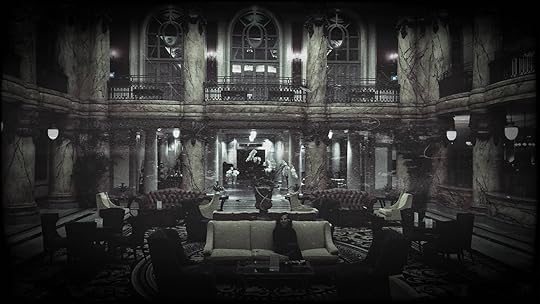
It was born of families who stay in one place–often one home–not for years, but epochs. They pass down stories like heirlooms–sometimes cracked, sometimes hexed.
In Night of the Moon Witch, the Bramwell bloodline is old, magical, and marked.
Writing them has been like pulling threads from my own lineage—where war and exile shattered generations and turned kin into strangers. Heroes and villains, all wearing the same last names. And our names always sounded like spells to me–incantation or warnings, depending on who was speaking them.
This is folk horror. Poetry-driven magic. Betrayal, bloodline curses, and women too powerful for the towns that birthed them.
Night of the Moon Witch is for anyone who ever left home thinking it would break the curse—only to discover that the curse was never in the place.
It was in you.
If you’ve ever dreamed of something ancient walking in the woods…
If you’ve ever feared becoming the thing your mother warned you about…
If you’ve ever loved a monster more than you should…
This book is for you.
Pre-order Night of the Moon Witch now. Before the next full moon.
Pre-order your print copy at Speakeasy Editions.
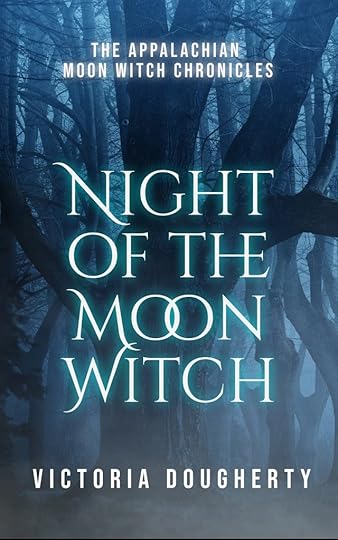
When poetry professor Twila Stith arrives in the mysterious mountain town of Sibyl Springs, Virginia, she thinks she’s starting over. She couldn’t be more wrong.
Fired from her university position and desperate for a fresh start, Twila accepts a teaching job at the prestigious Valemont School for the Gifted. But from the moment she sets foot in this ancient Appalachian town, she knows something is watching her. A man plunges to his death from the historic Montague Hotel, his blood staining the grand entrance. Strange dreams blur the line between memory and vision. A ghostly girl from decades past appears with cryptic warnings. And most unsettling of all, she finds herself inexplicably drawn to Langston Martin—her enigmatic department head who seems to despise her on sight, and harbors secrets as old as the mountains themselves.
As eerie encounters escalate and the full moon approaches, Twila discovers that her lifelong fascination with lunar cycles runs deeper than mere poetry. The residents of Sibyl Springs recognize something in her that she doesn’t understand—something that makes her both powerful and dangerous. When ancient forces begin stirring in the shadowed hollows and a malevolent entity sets its sights on her, Twila must uncover the truth about her connection to this place and its supernatural inhabitants.
But in a town where everyone guards their secrets and the past refuses to stay buried, Twila will learn that some truths are more terrifying than any lie—and remembering who she really is might be the most dangerous thing of all.
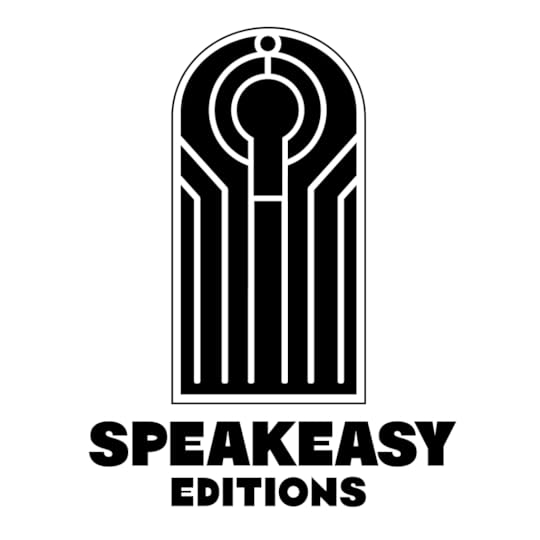
July 19, 2025
The Line Between Order and Chaos: Literature’s Lost Archetypes
My daughter is a huge true crime fan. It’s become our thing, listening to true crime podcasts together. This week, we were listening to a bunch of them as we were driving the interminable journey from Tampa, Florida, where we were visiting my aunt and cousins, back to Virginia. As we were taking in the psycho bitches, murdering husbands, perverted pastors, and doomed goth-maidens (one was skinned alive for the love of God), it occurred to me – and not for the first time, I might add – how tentative the line between a functioning life and all out bedlam can be. How important it is for us to have a dose of clarity – moral and archetypal – along with our nuance and radical tolerance.
The true crime thing also got me thinking about a David Brooks essay in the New York Times recently. My Speakeasy partner, Janet, sent it to me with the disclaimer, “What I thought was going to be a pretentious article, turned out to be pretty damn good…very Speakeasy.”
Brooks’ piece was about the state of literature and reading in the USA. How novels have become overly determined, politically rigid, and ultimately, not very fresh or relevant. He explores the popular culture drift to genre fiction, often explained by condescending theories about how American readers no longer like to read complex material. Our attention spans have suffered, they claim, and our tastes have become pedestrian at best.
Only the data doesn’t support that. According to reading trends, classical literature is experiencing a Renaissance. It’s only contemporary literature that’s losing out to the massive commercial appeal of genre fiction.
Brooks contends that literary novels began to sink when they went from gestating in Greenwich Village to incubating in the MFA programs. In higher education, conformity trumps hipster independence by a long shot. I’ll be honest, being a Midwesterner with a mere bachelors degree, I’m not clear on the nitty-gritty of what the differences are between Greenwich and the MFA program, but I can definitely see the degradation Brooks is writing about. I’ve long been bored by what The New York Review of Books has been telling me I absolutely must be reading. It’s not that the writing is bad, but that the themes are all too predictable and have lost the ability to upend my expectations.
In my own observations, I think people drifted towards genre fiction not because they became dumber, but because it became the only place they could indulge in views and character types that have been deemed unsavory, archaic or downright verboten. A place where a smart heroine might want a man with a strong personality, and a single mother might not always be a saint.
This is most glaring in the Romance genre. There, you see the unrepentant Alpha male, the virgin, the femme fatale, the vengeful ex-girlfriend. You also see the coward, the radically redeemed man, the classical hero, a celebration of the feminine, a veneration of the masculine. These are all ancient character types that have been largely expunged from literature with a capital L in recent decades. Yet as a culture, we have a need to explore and contextualize them.
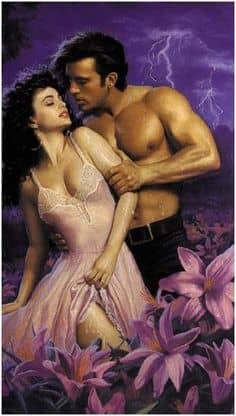
John Steinbeck was a master at presenting these archetypes in a nuanced universe that didn’t always line up with our hopes for humanity. So was Raymond Chandler, Milan Kundera, Gabriel Garcia Marquez, Philip Roth, Flannery O’Connor and a laundry list of spectacular authors who used to have the blessing of the literati, but couldn’t have gotten published in recent years. Political types will blame it on DEI, but I don’t buy it. If it were strictly about race, gender, sexual preference, then we’d see politically eclectic black/female/queer authors being celebrated for their artistry. The pro-life trans activist, the black capitalist, the feminist gun-enthusiast, the devout Christian of any stripe.
But we don’t.
Instead, we get a literary landscape that feels sanitized, scrubbed clean of moral complexity in favor of moral certainty. The contemporary literary establishment has become so afraid of offending anyone that they’ve forgotten the essential truth that great literature has always been about wrestling with uncomfortable realities, not avoiding them.
The result is that readers hungry for psychological authenticity have fled to genre fiction. There, in the supposedly “lowbrow” realms of mystery, romance, science fiction, and horror, they find what literary fiction has abandoned: characters who act from genuine human motivations rather than political imperatives. A thriller can present a corrupt cop without contextualizing his corruption through systemic oppression. A romance can explore masculine strength without deconstructing the patriarchy on every page. A horror novel can present evil as a choice rather than a symptom of societal failure.
This isn’t to say social context doesn’t matter – of course it does. But when every character becomes a vessel for political messaging, literature loses its ability to challenge us, to reveal unexpected truths about human nature. We end up with novels that feel more like position papers than works of art.
The irony is that this rigid approach is actually less progressive than the freewheeling experimentation that characterized the best of twentieth-century fiction. Authors like Toni Morrison, James Baldwin, and Alice Walker managed to address issues of race, gender, and power while still creating characters who felt fully human, who unsettled readers with their complexity and contradictions.
What we’ve lost is the understanding that literature’s job isn’t to make us comfortable with our existing beliefs, but to make us uncomfortable with our assumptions. Good literature should disturb us, should force us to confront aspects of human nature we’d rather ignore (Hello, “Lolita” by Vladimir Nabokov). When we sanitize literature, we rob it of its power to transform us.
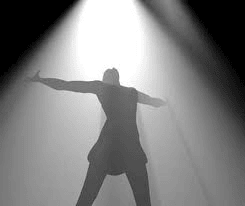
Genre fiction understands something that much of contemporary literary fiction has forgotten: archetypes endure because they reflect fundamental aspects of the human experience—truths that transcend any given historical moment or political mood. The hero’s journey, the wise but weary mentor, the fall of the corrupted innocent—these aren’t outdated clichés. They’re deep patterns in the collective psyche, echoing our fears, desires, and struggles across generations.
When we exile these figures from so-called serious literature, we don’t destroy them. We just drive them underground—into the realms of genre fiction, fantasy, horror, thrillers—spaces long dismissed as “lesser.” But these are the very stories that continue to grapple, boldly and without irony, with what it means to be human.
Great art demands both moral courage and creative freedom. Writers must be willing to explore uncomfortable truths about human nature, even when those truths defy current orthodoxies. They need the freedom to write characters who are flawed, contradictory, sometimes even monstrous—and to trust readers to find meaning in that complexity.
Perhaps that’s why my daughter and I keep returning to true crime podcasts during our long drives. In those raw, unfiltered narratives, we encounter the kind of moral ambiguity that’s been largely scrubbed from contemporary fiction. We meet killers who are also loving parents, victims who’ve made tragic choices, investigators who bend the rules in pursuit of justice. We hear stories where the line between order and chaos is terrifyingly thin, where the ordinary and the monstrous wear the same face.
These stories remind us that human nature is more tangled—and more fascinating—than ideology allows. They suggest that good and evil aren’t fixed points, but sliding scales. And they force us to confront the possibility that moral clarity is often just the comfort of not looking too closely.
So as my daughter and I wind our way home through the dark, the car filled with voices recounting tales of violence, grief, and resilience, I find myself thinking: maybe the deepest truths don’t come from the literature we’re taught to revere, but from the stories we tell ourselves when no one is watching. Stories about the monsters we might become. And the heroes we still hope to be.

July 5, 2025
Whirlwinds and Other Unscripted Moments
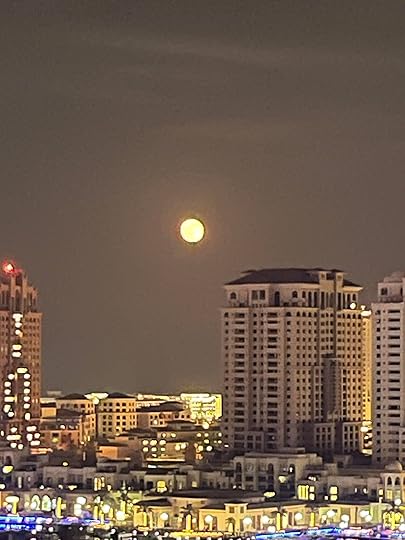 Our neighborhood in Doha
Our neighborhood in DohaRecently, rockets lit up the sky over Doha, Qatar—right above our neighborhood no less. The same one you see in the above photo that I snapped with my iPhone just a few weeks ago. According to our Doha friends, the sound alone was enough to stop time–that peculiar whistle and boom that makes your heart forget its rhythm for a beat or two.
For those of you who may not know what I’m talking about, I’ll give you the skinny. Iran, in retaliation for the destruction of its nuclear facilities, launched fourteen rockets through Doha’s airspace, targeting the U.S. base there. Fourteen missiles–each one heavy with international tensions. For a few hours, the air itself seemed charged with possibility—the terrible kind that makes you realize how gossamer-thin the membrane is between an ordinary Tuesday and a history-making catastrophe. It looked like the start of a full-blown war, the kind that reshapes maps and rewrites the stories we tell our children about safety in the world.
But as we reached out to friends in the Middle East, as my husband worked his network of colleagues–voices carrying the calm of those who’ve weathered geopolitical storms before–it became increasingly clear that this retaliation was choreographed. A carefully orchestrated performance designed to allow Iran to save face while hopefully, mercifully, avoiding the war that no one with any sense actually wants. The rockets were real enough, their thunder genuine, but the dance they were part of was a diplomatic ballet performed with weapons instead of words.
All of this unfolded less than twenty-four hours before my husband and our middle daughter were scheduled to board a plane for Doha, leaving me behind to shepherd our youngest through that sacred, terrifying threshold into university life. For a while there, suspended in that strange liminal space between decision and action, it didn’t look like they were going to go. We found ourselves gaming out scenarios, weighing the weight of “what if” against the lightness of “but probably not.” Yet lo and behold, things simmered down as quickly as they came to a boil, like a pot of soup pulled from the fire just before it bubbles over. Life resumed its forward motion as if nothing had happened, as if the world hadn’t just reminded us how quickly everything can pivot on the axis of someone else’s decision.
It was a whirlwind—the kind that leaves you dizzy not from spinning, but from the sudden stillness that follows.
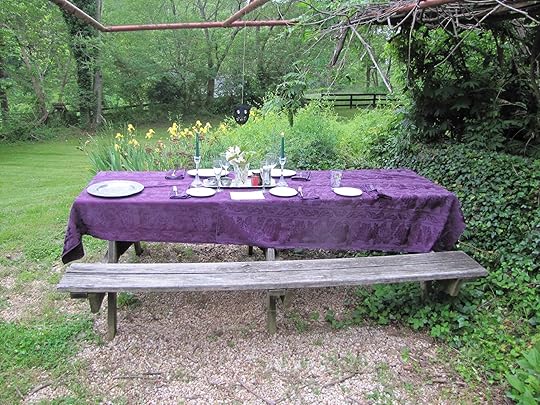 There’s nothing more still than our Virginia backyard, except during a thunderstorm, of course.
There’s nothing more still than our Virginia backyard, except during a thunderstorm, of course.A few months ago, I asked a Doha friend of mine—a Polish professor of literature with a love for complicated novels and pitch-black humor—what her plans were for the summer. Her answer arrived like a small revelation: “Since COVID,” she said. “I don’t make any plans.” Even when she buys a plane ticket or arranges a rendezvous, she no longer has any expectations about them, treating any realized plan as a pleasant surprise, a gift from a universe that owes her nothing but occasionally chooses to be kind.
Her words came flooding back to me as we sat in our bedroom, half-packed suitcases like question marks scattered across the floor, contemplating what those Iranian rockets could mean for our lives, for our collective sense of safety and well-being. The weight of it pressed hard, especially knowing that my husband and I will soon both be living in our Doha high-rise again. A place that’s about as different from our old Virginia home as a glass tower is from a garden, all vertical lines and reflected light where we once had sprawling rooms that breathed with the seasons. Our middle daughter will return from her Doha adventure and she and the rest of our children will remain in the United States. Our son, our firstborn who once fit in the crook of my arm, is now an officer in the Marine Corps, uniformed and trained and entirely capable of finding himself drawn into the very conflicts we watch unfold.
Yet, even as my mind catalogued all the ways this could go wrong, I felt something unexpected: a strange sense of peace and faith settling over me. It was the same preternatural calm that has visited me during other storms in my life, after other whirlwinds have torn through the landscape of my carefully constructed plans. The steadiness that held me when I moved to Prague with nothing but hope and a few hundred bucks. When I fell in love with my husband in a way that defied every rational timeline I’d ever imagined for myself. When I held healthy children in my arms and marveled at their perfect fingers and toes, and when I later held a very sick child and learned that love can expand to accommodate terror without breaking.
It was there again last year when opportunity knocked with the subtlety of a sledgehammer, and we decided to move across the world—literally across the world—and had about a month to make all of that happen. A month to sort through a lifetime of accumulated belongings, to say goodbye to a place that had been home for twenty years, to leap into the unknown with nothing but a deeply held belief that the net would appear.
These moments, strung together like prayer beads on an old rosary—are a reminder that life isn’t something to be plotted and predicted with architectural precision. Life is dynamic, gloriously and sometimes jarringly so. It’s the physical manifestation of a universal spirit that’s constantly challenging us to grow, to understand, to love more deeply and with less condition. It asks us, again and again, to surrender our illusion of control and live the story that has been written for us by the ultimate author of our existence.
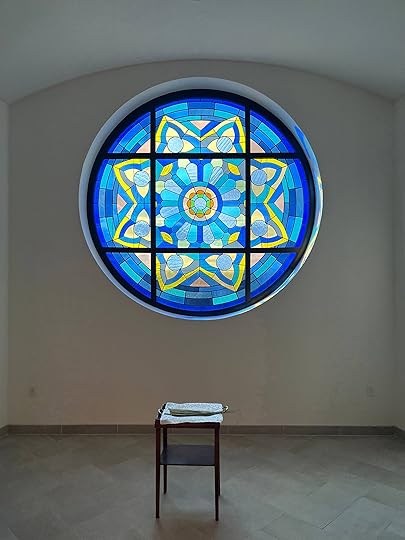 Our monastery in Virginia
Our monastery in VirginiaAnd perhaps that’s the real lesson of the rockets over Doha—not that the world is dangerous (we knew that already), but that our response to danger is where our true power lies. In the space between the whistle and the boom, between the plan and its dissolution, between the fear and the faith, we discover who we really are when everything we thought we could count on suddenly becomes negotiable.
The rockets have fallen silent now. The planes are flying again. My husband and daughter boarded their flight and waved goodbye. They’ve already had dinner at our favorite Doha restaurant, and plunged their feet into our apartment pool while enduring the ungodly heat. Somewhere in Spain, where she’s spending the summer, my Polish friend will continue not making plans, finding joy in whatever small surprises the universe chooses to offer.
And I will remember that this, too—this moment of not knowing, this space between breath and release—is exactly where I’m supposed to be.
June 14, 2025
Home is a Story I Keep Rewriting
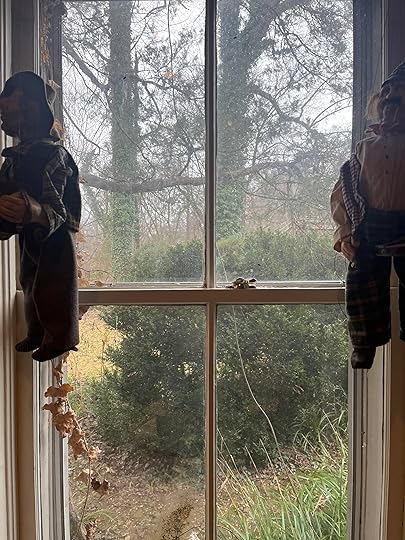 The view from my home office window, VA
The view from my home office window, VAIn Virginia, it is decidedly colder than it is in Doha. In fact, it felt like a bit of a cold plunge when I got off the plane to find that the weather called for a light sweater. The smells of greenery and lingering morning mist were like a muscle memory—ancient and immediate, as if the earth itself were whispering secrets I’d forgotten I knew. The scenery, while intimately familiar, remained at a distance. It was as if I was looking at a photo album, each vista separated by the thin membrane of time and transformation.
There’s something alchemical about stepping between worlds. The Virginia air carries ghosts of all my former selves: the young mother who scrubbed the red clay mud from her children’s clothes, the writer who found her voice in these rolling hills, the woman who believed home was a fixed point rather than a constellation of possibilities. Now, returning from the desert, I feel like an archaeologist of my own life, carefully brushing dust from artifacts of memory.
It is a bit strange to feel the call of two homes at the same time. Doha most certainly feels like home when I’m there—the way the sun scalds the earth with theatrical, unrelenting force, the rhythm of a life rebuilt from scratch, the exhilarating vertigo of becoming someone new in middle age. I miss my older children with the persistent ache of phantom limbs, but I have great affection for my new routine and the friends I’m making. Each morning there feels like stepping into a story I’m still writing, where the protagonist is both familiar and mysteriously transformed.
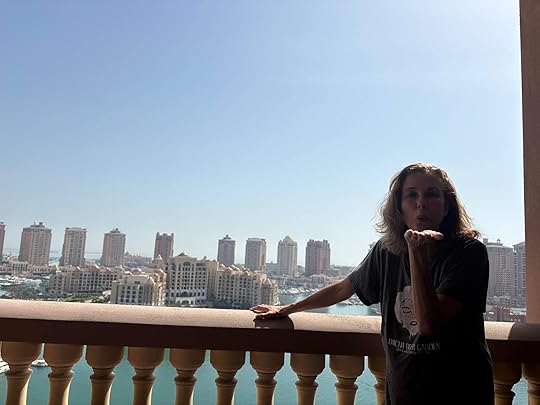 Me on my balcony in Doha
Me on my balcony in DohaThe transition to Virginia for the summer, as I prepare our house for renters and launch our youngest at college, feels a bit like time-travel. Not the clean, Hollywood version where you simply arrive in another era, but the messy, quantum kind where past and present exist simultaneously, overlapping like double-exposed photographs. The woman who boards the plane in Doha is not quite the same as the one who unlocks the Virginia door, and yet they share the same hands, the same wandering heart.
And still, within hours, I find myself falling right back into life here. The body remembers what the mind questions. My fingers knew exactly which drawer held the good knives; my feet traced familiar paths through rooms that seemed both smaller and larger than memory had preserved them. The alien vintage clothing store smell that had taken over our house began to give way as my daughter and I cooked in our kitchen, put away our clothes, and gave the place a deep clean. We were performing a ritual of reclamation, casting spells of domesticity to call the house back to itself.
There’s magic in the mundane work of homecoming. Each opened window was an invitation for the Virginia air to remember us. Each meal prepared was a conversation with the kitchen’s accumulated wisdom. My daughter and I moved from room to room, not just cleaning, but coaxing the house back to life. We were archaeologists and architects at once, excavating the past while constructing the present.
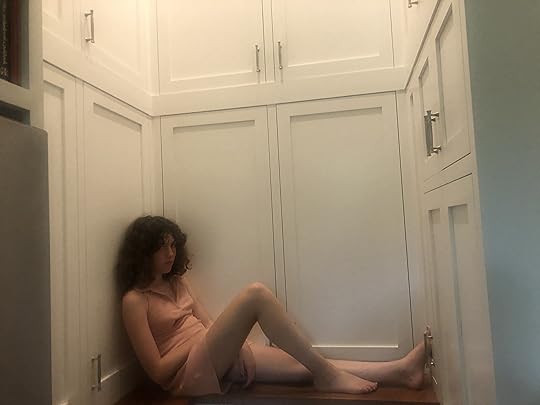 My girl in our pantry
My girl in our pantryAs I settled back into life—blending my new role as an empty nester and expat with my old one as a rural Virginia writer and hands-on mother—I realized how much my fiction has always reflected my real-life experiences. But the mirror analogy doesn’t quite capture it. It’s more like a prism, refracting my life into different angles of meaning, each genre I write in offering its own way of seeing.
When I’m struggling with my family’s complicated history, I turn to writing Cold War thrillers. The past becomes a landscape of shadows and secrets, where every conversation might be coded, every silence corpulent with unspoken truths. The genre gives shape to shapeless anxiety, transforms the bewildering complexity of inheritance into something that can be solved, or at least survived. In these stories, I am both the spy and the double agent: the one who keeps secrets and the one who seeks to expose them.
As I ponder my marriage and children, I lean towards the epic and romantic. Love becomes a quest across impossible distances; relationships transform into mythic journeys where ordinary people discover they possess extraordinary powers. In these tales, every misunderstanding is a dragon to be slayed, every reconciliation a kingdom restored. The genre allows me to honor the genuine heroism required for lasting love, the way couples must repeatedly choose each other across decades of change.
And as I look back on my twenty years in rural Virginia, I find myself reimagining the Southern Gothic, local folklore, even elements of horror. The familiar landscape becomes haunted ground, where the past refuses to stay buried and family secrets grow like kudzu—beautiful, but suffocating. Spanish moss transforms into the hair of sleeping witches, and every old house holds the memory of all who lived and died within its walls. Horror becomes a way of acknowledging that home can be both sanctuary and trap, that the places we love most deeply are also the places that know all our weaknesses.
Each genre is a love letter to experience and evolution, re-envisioned as time-travel and sorcery. Writing becomes my way of honoring the mystery of transformation—how we can be one person in Doha and another in Virginia, how we can carry multiple homes in our hearts without being divided, how we can change completely while remaining essentially ourselves.
Perhaps this is what it means to be a writer living between worlds: to recognize that every story is really about the impossible magic of being human, the way we somehow manage to be both constant and ever-changing, both rooted and rootless, both homesick and home-coming, all at once. In the end, all our genres are just different ways of saying the same thing: that life is far more mysterious and wonderful than we ever dare to imagine, and that the greatest adventure is simply learning to see our own existence with the wonder it deserves.
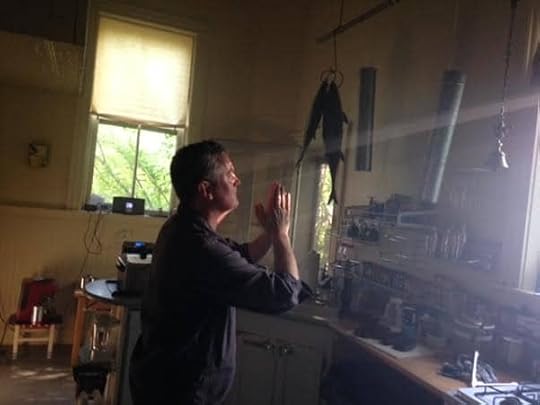 My husband in our VA kitchen
My husband in our VA kitchen



